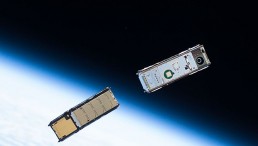ocean
Global Warming Brings Coral Bleaching In The Great Barrier Reef
Walking Fishes: Sea Robin, Pink Frogmouth, Caught On Camera At The Ocean Floor
Underwater Mollusk Fossil Deposits Gateway To Glorious Past
Scientists Discovered 10 Bizarre New Sea Creatures At The Hidden Depths Of The Atlantic Ocean
Global Warming Causes Record Shrinking Of Ocean Oxygen Level In 50 Years: Alarming Condition For Sea Life
Deep-Ocean Sound Waves Might Stop Tsunamis
Oxygen Decreases In Oceans Affecting Not Only Aquatic Animals
Man-Made Wastes Reaches 7 Miles Deep To Mariana Trench
Mismatched Eyes Of The 'Cockeyed' Squid Help Them To Survive In The Twilight Zone Of Ocean
Once Solid Peninsula in Antarctica Begins to Melt
Seeing With Its Skin—How An Octopus Can Live In the Deep
Port of Los Angeles Reveals a New Resident of the City—A Roly Poly Pillbug Species
Ocean Microbes and How They Affect Our Atmosphere in the Age of Climate Change
Octopus Arm Inspires Future Surgical Tool
Most Popular

Ultra-Processed Foods Linked to Shorter Lifespan, Study Reveals; How Dangerous Are They?

Over-Salting Food Could Heighten Stomach Cancer Risk by 40%, Study Finds

Anavex Life Sciences Alzheimer's Treatment Brings Hope to Millions

We Strange Star's Eclipsing Mass Could Help Search For Alien Civilization as





